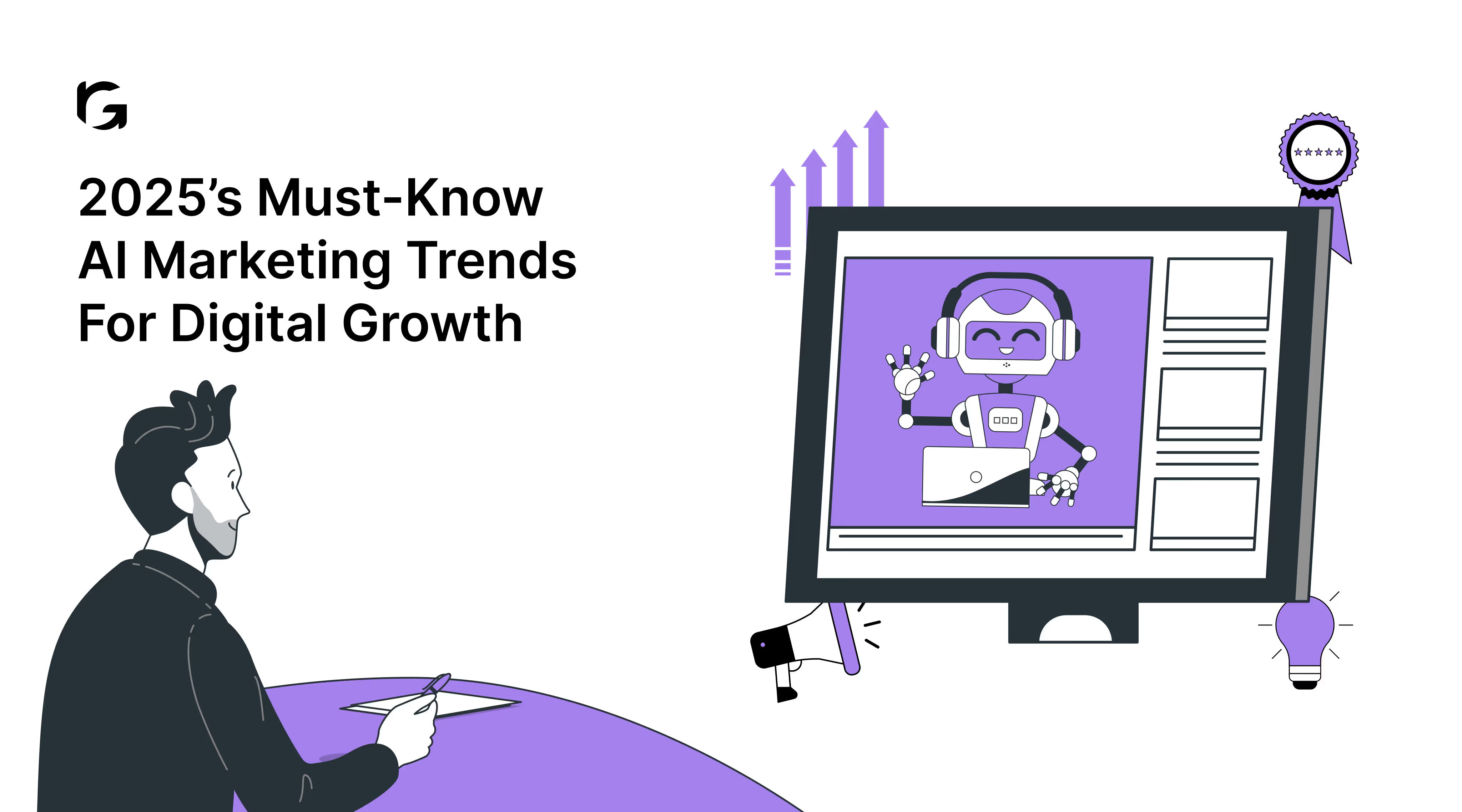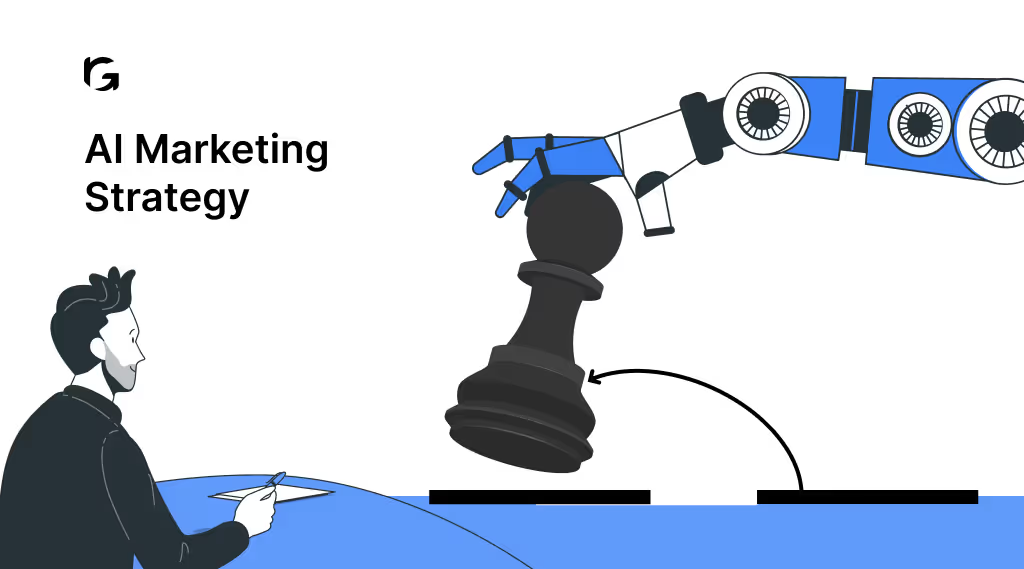Introduction
Ever wonder why launching a pharma campaign takes so long, when you already know what you want to say?
It’s not the ideas that slow you down. It’s the rewrites. The reviews. The endless back-and-forth with legal and medical. In today’s fast-paced industry, AI in Pharma Marketing is transforming how teams handle these challenges.
You spend days adjusting the same content for different markets, chasing approvals, and waiting. And when everything’s finally ready, the moment’s already passed.
But not every team is stuck in that loop. Some are launching campaigns in days, not weeks. They’re still accurate, still compliant, but much faster.
What’s their edge? AI.
Not to replace their teams, but to handle the repetitive stuff: generating content versions, speeding up reviews, and keeping everything aligned across markets. AI helps pharma marketers get more done, stay compliant, and keep quality high, without the stress or extra costs.
What is AI in Pharma Marketing?
AI in pharma marketing is the use of artificial intelligence to improve how pharmaceutical companies plan, create, and deliver marketing campaigns. It leverages data analysis, automation, and machine learning to enhance targeting, accelerate content production, and support smarter decision-making.
For example, AI can:
- Personalize messages for different doctors and patient groups
- Automate repetitive tasks like emails, follow-ups, and reporting
- Speed up medical and legal reviews by flagging compliance issues early
- Track performance and suggest data-driven improvements in real time
It helps teams save time, stay compliant, and connect with the right people, without all the manual effort.
Key Use Cases of AI in Pharma Marketing
Here are some practical AI use cases that help pharma marketers move faster, engage smarter, and stay compliant:
1. Strategic Insights & Predictive Analytics
Pharma teams often struggle with data scattered across CRMs, prescribing systems, and campaign dashboards. By the time they gather insights, the moment has often passed. AI in pharma marketing changes this by turning fragmented data into real-time, useful insights.
What AI Can Do:
- Identify which doctors are most relevant based on behavior and prescribing trends
- Predict what content will perform best and adjust mid-campaign
- Detect early signs of low product uptake or access issues
- Summarize internal notes and align teams faster
AstraZeneca used AI-driven predictive models to anticipate prescribing trends and align sales strategies accordingly. By integrating data across systems, the company reduced insight generation time and improved the accuracy of Health Care Professionals (HCP) engagement strategies. This allowed brand teams to adjust messaging mid-campaign, resulting in more effective outreach and improved campaign ROI across key therapy areas.
2. Content Creation & Optimization
AI speeds up pharma content creation by writing drafts, localizing materials, and checking for compliance issues. With U.S. pharma ad spend hitting $34.6B in 2024, AI helps manage this volume without slowing teams down.
Pharma teams face constant pressure to produce compliant, localized content at scale. AI streamlines this by drafting materials, pre-checking for compliance issues, and adapting content for multiple markets without added delays.
What AI Can Do:
- Draft emails, sales decks, and web copy based on approved inputs
- Pre-check for off-label claims and risk flags before MLR review
- Automatically localize content across languages and regions
- Suggest edits aligned with previous approved materials
Pfizer partnered with Adobe to overhaul its content supply chain using Firefly, Express, and Experience Manager Sites. This resulted in a 50% reduction in content creation time and enabled over 10 brand site launches within months.
Pfizer’s marketing teams now generate localized, compliant content faster, improving agility while maintaining strict regulatory standards.
Read here: How we helped our clients with AI-assisted content creation
3. Personalized Messaging For Doctors & Patients
Generic outreach no longer works. Doctors expect tailored communications, and patients require timely nudges to stay on treatment. AI enables pharma companies to personalize touchpoints based on behavior, specialty, and need.
What AI Can Do:
- Customize HCP messaging by specialty, preferences, and channel
- Detect patient risk signals (e.g., missed refills, dropout risk)
- Trigger automated reminders or support materials
- Choose the optimal time and platform for outreach
Novartis used AI to reorganize sales territories based on prescribing behavior and HCP engagement trends. This shift led to a 20% increase in sales productivity. By aligning sales efforts with AI-generated insights, reps were able to tailor their messages more effectively and connect with the right HCPs at the right time.
4. MLR Review & Compliance Automation
Getting content approved in pharma is time-consuming. Every email, ad, or brochure must go through medical, legal, and regulatory (MLR) review. It’s essential, but often slows down campaigns. AI speeds this up by checking content before it hits formal review, catching issues early.
What AI Can Do:
- Flag off-label claims, risky language, or missing references
- Suggest edits based on past approved content
- Prioritize content by risk level so reviewers focus where it matters
- Improve over time with reviewer feedback
Klick Health, a leading health-focused marketing and commercialization agency, uses natural language processing (NLP) to review content in real time. Their tools identify compliance risks, reuse approved assets across geographies, and streamline the review workflow.
5. AI for Campaign Orchestration
In pharma marketing, doctors interact across email, websites, portals, and in-person visits. AI helps track how each doctor engages and adjusts the next message based on what’s working, across all channels.
What AI Can Do:
- Sequences outreach across email, digital ads, rep visits, and portals
- Recommends best next steps based on past behavior
- Adjusts messaging or timing in real time
- Reallocates budget to high-performing channels or segments
Johnson & Johnson uses AI to optimize how reps connect with healthcare professionals. Their system looks at prescription data, previous engagement, and access barriers to suggest the best next action, like sending a follow-up email or scheduling a visit. Other pharma companies use similar orchestration tools to personalize outreach and avoid repeating messages.
Why AI Matters in Pharmaceutical Marketing?
AI gives pharma marketers the speed, intelligence, and precision to deliver timely campaigns, deepen HCP engagement, and empower sales teams. It helps teams stay compliant, relevant, and competitive.
Cuts Through the Noise with Precision Targeting
Healthcare professionals are overwhelmed with generic promotional content. AI empowers pharma marketers to deliver personalized, compliant messaging at the right moment, increasing relevance, improving engagement, and maximizing marketing ROI.
According to the Philips Future Health Index 2025, 76% of Indian healthcare professionals are optimistic that AI can improve patient outcomes, reflecting growing trust in AI-driven solutions.
Builds Stronger Reps Through AI Training
Pharma sales reps face high stakes: complex products, strict regulations, and limited time with healthcare professionals. AI-powered simulations provide personalized, real-time feedback that helps reps improve communication, stay compliant, and tailor content to each HCP.
This leads to more relevant conversations and better sales performance. Companies using AI-driven coaching have seen a 27% increase in top-performing reps, proving its impact on field force effectiveness.
Turns AI Into a Competitive Advantage

AI in pharma marketing is projected to reach $9.64 billion by 2029, growing at a 26.2% CAGR. Companies that embed AI into their workflows are executing campaigns faster, targeting more precisely, and improving ROI across channels.
This shift isn’t experimental. It’s a proven strategy that gives early adopters a measurable lead in speed, compliance, and performance.
How to Implement AI in Pharmaceutical Marketing?
Implementing AI in pharma marketing is not a one-time project; it’s a scalable, step-by-step evolution. Teams that succeed start small, build trust, and expand intelligently across functions like content, CRM, and compliance.
.avif)
1. Start with low-risk, high-impact workflows
Focus on repetitive or manual tasks first, such as tagging content or sorting HCP emails. These “quick wins” prove value early and build internal confidence.
Community Insight: Discussions on Reddit highlight that the most effective early AI uses are routine tasks like summarizing or categorizing medical content, not complex prediction. Starting small prevents strategic misalignment and reduces compliance risk.
2. Involve cross-functional teams early
Bring legal, medical, IT, and marketing together from the start to set rules and ensure governance.
Community Insight: On Reddit, professionals note that real adoption happens when non-marketing teams also use AI for admin or documentation work, helping build company-wide comfort with automation.
3. Integrate your AI tools and platforms
Ensure your AI integrates with your CRM, content library, and MLR (Medical Legal Regulatory) systems.
Community Insight: A thread on Reddit points out that many “AI-ready” systems still rely on disconnected tools. Integration behind the scenes, not just adopting new software, is what truly drives efficiency.
4. Pilot, measure, and scale
Test AI within one brand or market before scaling. Measure speed, quality, and compliance impact.
Community Insight: Users in Reddit mention that AI is already part of medical writing workflows but still requires human checks, proving that controlled pilots with oversight are the best way to scale responsibly.
5. Build continuous improvement into your process
Use dashboards and feedback loops to track AI accuracy, prompt quality, and workflow outcomes.
Community Insight: In Reddit, pharma teams share that AI tools like Copilot help summarize team calls and identify follow-up actions, showing how ongoing iteration turns AI into a learning partner.
6. Govern and standardize AI usage
Create policies for transparency, fairness, and data security from the start. Define what AI can automate and where human review stays essential.
Community Insight: Contributors on Reddit emphasize that companies now introduce internal AI tools mainly to stop staff from pasting confidential data into public chatbots, underlining why strong governance is critical.
Once you’ve built this foundation, the next step is selecting the right AI tools for pharma marketing, platforms that operationalize these workflows safely across markets while keeping campaigns compliant and efficient.
Top AI Tools for Pharma Marketing
Choosing the right AI tools can make the difference between a slow campaign and a scalable, compliant growth engine. Here are some of the most effective solutions pharma marketers use today:
- Veeva Vault PromoMats – Automates content approval and ensures every asset stays compliant across regions.
- Adobe Experience Cloud – Powers personalized omnichannel campaigns and rapid localization for global markets.
- IQVIA OCE (Orchestrated Customer Engagement) – Unifies HCP data to help sales teams take the right action at the right time.
- Salesforce Einstein for Pharma – Turns CRM data into predictive insights to drive more targeted engagement.
- ChatGPT Enterprise / OpenAI APIs – Accelerates compliant content creation, localization, and medical review prep.
- Klick Health Genome – Uses machine learning to automate compliance checks and improve asset reuse.
These platforms form the backbone of modern pharma marketing, but tools alone don’t create transformation. You need the right strategy, integrations, and compliance workflows to unlock their full potential.
At Revv Growth, we help pharma brands build AI-ready marketing systems, from content automation to predictive engagement. If you’re ready to operationalize AI and scale compliant campaigns faster, book a strategy call today and see how AI can power your next launch.
Conclusion
AI in pharmaceutical marketing is no longer experimental. It’s driving real impact across functions. From targeting healthcare professionals to streamlining content reviews and managing omnichannel campaigns, AI enables faster execution, stronger personalization, and better compliance.
For marketers, it improves segmentation, speeds up content production, and allows real-time campaign optimization. For medical and legal teams, it reduces review cycles and flags compliance risks earlier. For leadership, it provides clearer performance insights and measurable ROI.
Successful pharma companies don’t just explore AI. They apply it to specific, high-impact areas, prove its value, and scale from there.
If you’re looking to operationalize AI across your marketing efforts, Revv Growth can help you move from pilot to performance, safely, strategically, and at speed. Get in touch with us today!

.avif)

.svg)

.avif)

.webp)